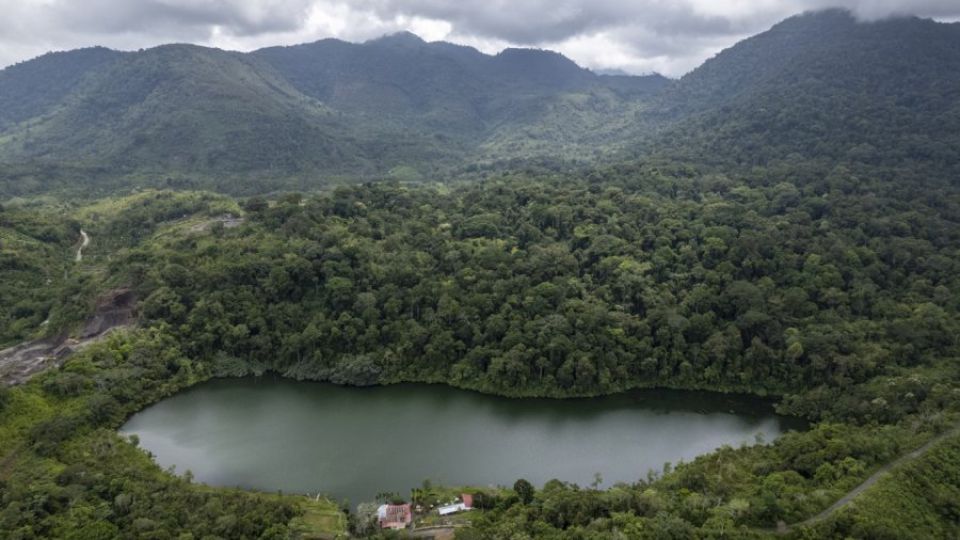December 12, 2024
JAKARTA – The European Green Deal may help commodity-exporting countries such as Indonesia to reap economic benefits from increased trade with European nations, but doing so may potentially move environmentally harmful practices from Europe to countries with less stringent environmental policies, researchers have warned.
In an effort to make the region the world’s first to reach zero-emission in the coming decades, the European Parliament has passed a set of regulations in the past few years that, among other purposes, mandates the adoption of environmentally friendly practices across various sectors
But some sectors, such as agriculture, have started feeling the brunt of the policies, stoking fears that farmers, industries and manufacturers across Europe might soon fail to keep their production in line with demand.
Experts said that resource-rich countries like Indonesia were well-positioned to pick up the slack and jump at the opportunity by expanding their agricultural land in order to export more of their commodities to Europe.
“Indonesia is projected to see an increase of 1 million hectares of land used for crop production thanks to the EU’s Green Deal Policy,” said Matthias Dieter of German research organization the Thünen Institute in Jakarta recently.
Read also: Strong policies urged to achieve climate ambitions
The country had 25 million ha of land used for crop production last year, according to data from Statistics Indonesia (BPS). Preliminary data from a study conducted by Thünen suggest that Indonesia would be among 10 countries to see a significant increase in its crop production as the result of the Green Deal.
Dieter took roundwood as an example, Indonesia may see an additional 6 million cubic meters produced annually of this the commodity, on top of the 64 million cbm produced in 2022, according to BPS data.
Proceed with caution
Despite providing an economic opportunity, the EU’s Green Deal may also exacerbate the risk of deforestation and heighten greenhouse gas emissions in Indonesia, according to forest policy expert Ahmad Maryudi of Gadjah Mada University’s Sebijak Institute.
He cited a joint analysis by Sebijak and Thünen that showed Indonesia had sufficient environmental regulations when it came to nature and climate conservation, but lacked implementation and enforcement.
Concern about the climate crisis and environmental destruction is on the rise, as President Prabowo Subianto’s administration aims for annual 8-percent growth in the gross domestic product (GDP), leading observers to fear that the target will come at the sacrifice of the environment.
“While the new administration has a tendency to prioritize the economy, we have laws in place to prevent [more environmental degradation],” Ahmad said. “But unless these laws are implemented properly, they will remain simply pieces of paper. That’s our challenge.”
Conservation biology professor Jatna Supriatna, who is also executive director of the Indonesia Science Fund (DIPI), called on the government to maintain “a balancing act” between the economy and environmental conservation.
He asserted that Indonesia had committed to several treaties on the climate and environment. “We can’t just ramp up our production at the cost of damaging the environment,” he said.
Should the government insist on increasing the agricultural yield for more European exports, policymakers and the private sector would need to work closely and follow best practices already suggested by various studies, Jatna added.
More negotiations underway
Indonesia’s ability to export to Europe, however, will soon depend on its ability to follow the EU’s Deforestation-free Regulation (EUDR) that requires the sale or export of goods into or out of the region to be deforestation-free.
The policy was scheduled to take effect by Dec. 30. But the EU agreed to postpone its implementation until late next year, citing concerns raised by its member states and their partners, traders and operators.
Indonesia would use the 12 months until the EUDR comes into effect to negotiate with the EU for more favorable terms, said Dida Gardera, food and agribusiness coordination undersecretary at the Office of the Coordinating Economic Minister.
“There are many technical aspects that still need to be discussed, including basic things such as the definition of forest,” Dida said.
Read also: Satellite images show deforestation toll of mining in Indonesia
He asserted Indonesia’s commitment to usher in a more environmentally friendly plantation sector with or without the EU’s help.
The negotiations are deemed important, as over 90 percent of 500 oil palm farmers interviewed for a study done by the Institute for Development of Economics and Finance (INDEF) claimed not to have heard of the regulation and were severely unprepared for the EU’s policy implementation.
Palm oil is one of the commodities deemed to be affected by the deforestation-free policies, as it is heavily linked to deforestation in many countries. The EUDR has prompted protests from producing countries such as Indonesia and Malaysia.


